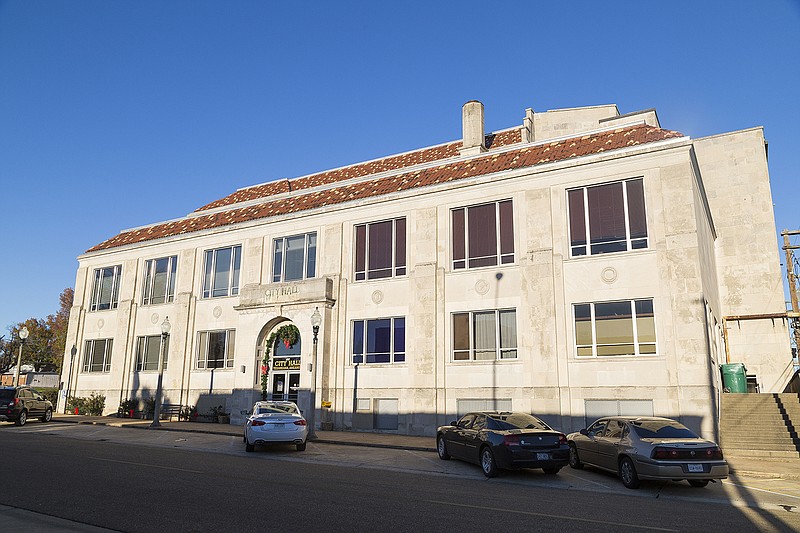TEXARKANA, Ark. - The local Public Facilities Board voted Tuesday to issue bonds worth $5 million to buy a plot of land to be used as incentive for businesses to locate here.
The move is part of a strategy led by AR-TX REDI, a regional economic development advocacy organization, to lure major employers such as logistics/shipping hubs and manufacturing plants to the Texarkana area. Having shovel-ready land available to give to such businesses is essential to bringing new, high-paying jobs to the region, REDI CEO Rob Sitterley has said.
Chairing the PFB meeting, City Manager Kenny Haskin called the deal "a major, monumental step" toward making more quality jobs available to area residents.
"I'm very, very excited about this opportunity," he said. "We're on the cusp of doing something really special here."
Sitterley said the land purchase is "one more step closer to making our region competitive."
"We've got some great leaders at both the city and the county that understand that we can't be competitive unless we have an asset and property to go out and market," he said.
A month ago, the city Board of Directors voted to provide the PFB the $100,000 option fee needed to secure its ability to purchase the land through the end of the year. The bonds issued Tuesday will finance buying the land for more than $4 million. The bond funds may also be used to purchase "ancillary" property, which, Haskin said, provides flexibility in meeting the needs of any businesses planning to locate on the plot.
The PFB will lease the land to the city and Miller County at a cost sufficient to service that bond debt. On Monday, the Miller County Quorum Court voted unanimously to participate in the deal and pay about $69,000 a year to the PFB for the next 20 years. During its meeting Monday, the city Board of Directors will take up approval of the city's portion of the lease.
Those involved in the purchase have been tight-lipped about the location of the land out of concern for spoiling the deal before it is completed, but the plot is known to be more than 1,300 acres in size. That makes it the largest site for industrial development in the state, Mayor Allen Brown has said. Sitterley has said the site has both interstate and highway frontage. During a meeting of the Quorum Court's Budget and Finance Committee on Nov. 2, Chairman Ernest Pender said the land itself is producing self-generated income from walnut orchards and farm leases.
Attorney Jim Fowler with Little Rock-based Rose Law Firm, who coordinated the legal aspects of the deal, said the closing date for issuing the bonds is Dec. 22. He also said the state Attorney General's office has approved the associated interlocal agreement among the city, the county and the PFB as required by law.
Created by Arkansas statute, PFBs are appointed by, but independent of, local governments and are authorized to engage in financial activity such as issuing bonds and leasing property with more flexibility than governments are allowed. Using the PFB also shields the city and county from liability should the PFB default on bonds it issues.
REDI has been working closely with local and county governments in the region to locate and acquire land for economic development. This spring, a partnership comprising REDI, the cities of Hooks and New Boston, and Bowie County, Texas, committed $1.5 million to purchase 847 acres of land near Red River Army Depot with frontage on Interstate 30.
Dubbed the East Texas Logistics Center, the tract "seems like a perfect fit" for a distribution center for companies such as Walmart and Amazon, Sitterley said at the time. On Tuesday, he said the Miller County site is better suited to heavy industry such as an auto or aeronautics manufacturing plant.
"It's important to point out that both parks complement each other. They do not compete against each other but allow us to go out and target two completely different industries," he said.
The next step for both the Miller County and Bowie County plots is a certification process meant to uncover and then remedy any problems, which will give businesses confidence to spend tens of millions of dollars developing the land.
Gazette reporter Greg Bischof contributed to this report.

